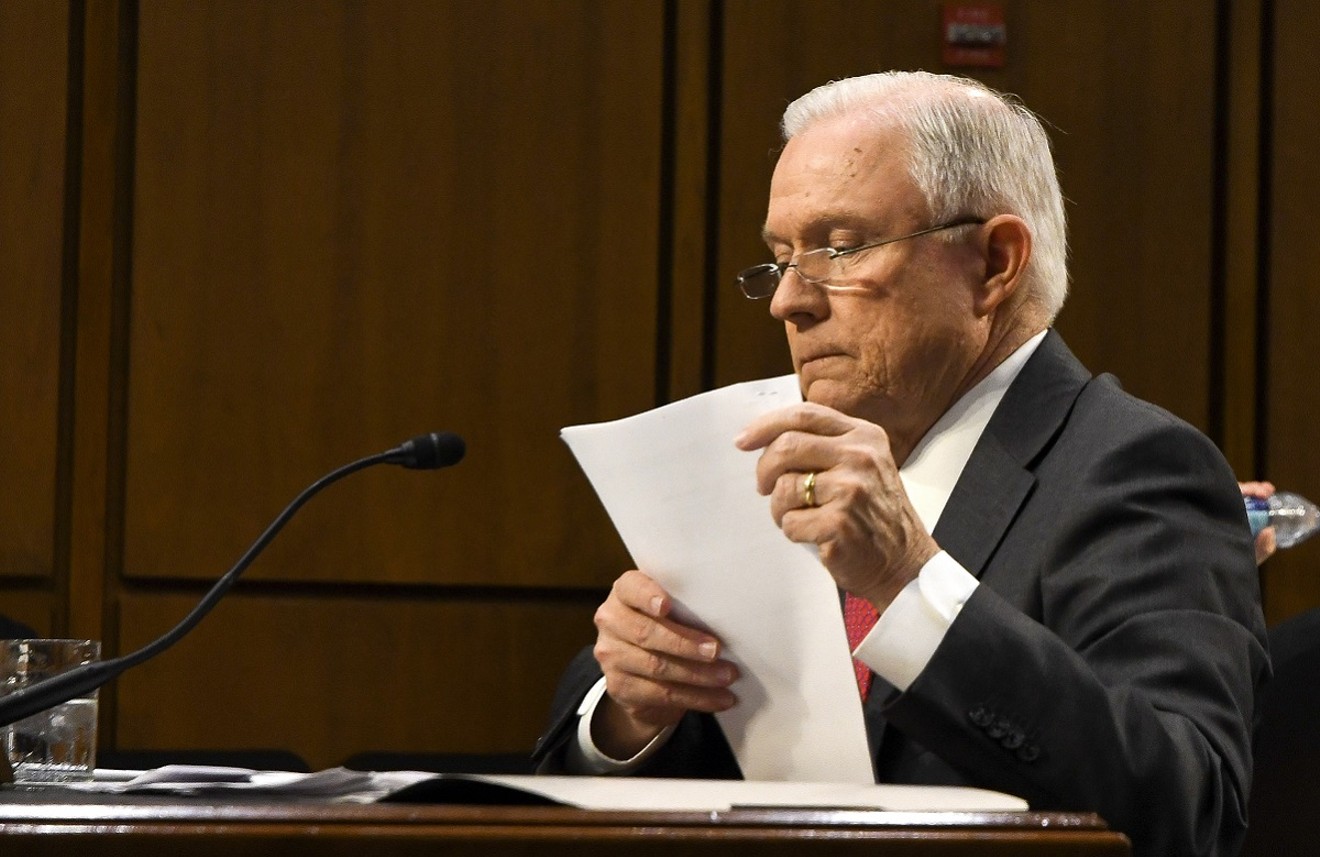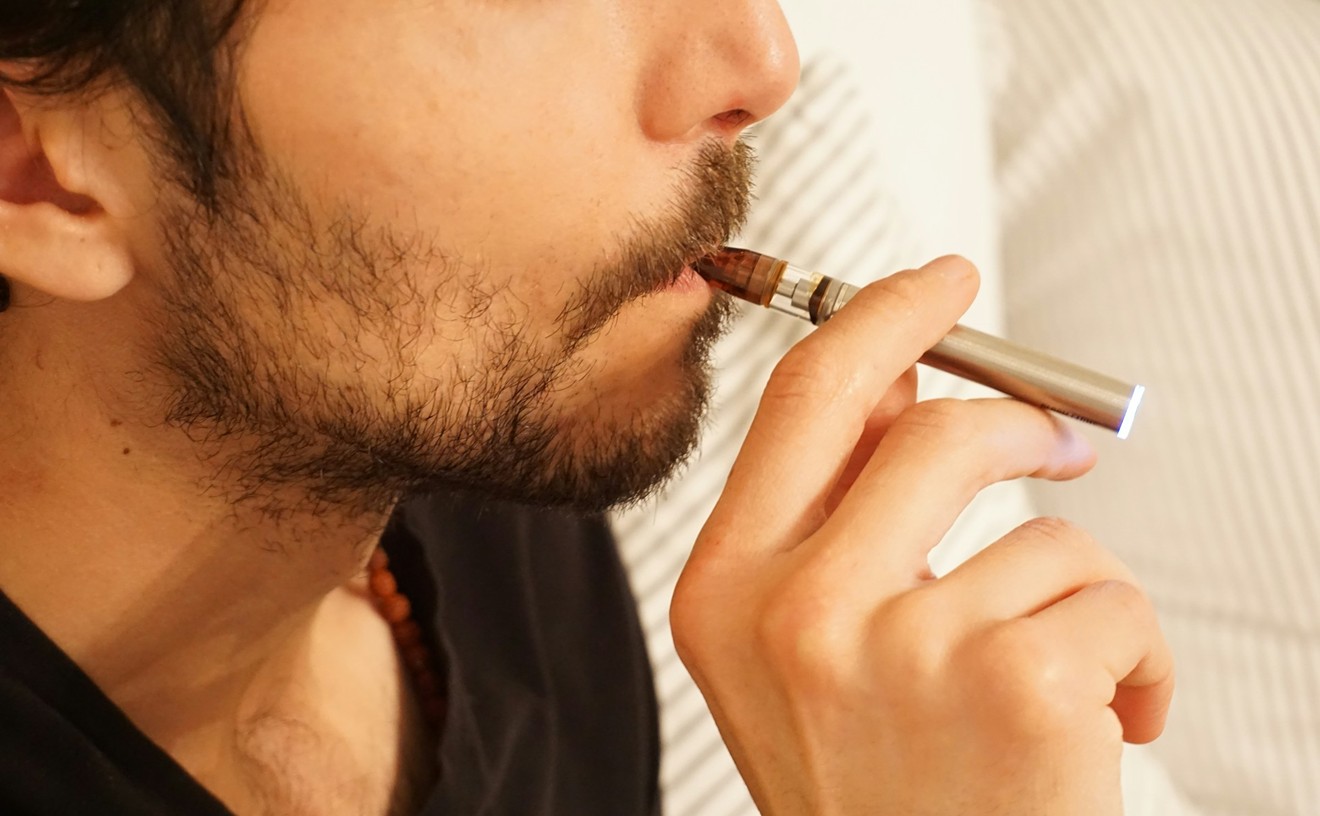United States Attorney General Jeff Sessions hasn't been shy about his disdain for marijuana use since being given the keys to the United States Department of Justice, but his department found itself on the defense in federal court on Wednesday, February 14. Former NFL player Marvin Washington, a twelve-year-old medical marijuana patient and three more plaintiffs are suing the DOJ, Sessions and the Drug Enforcement Administration over the federal government's classification of marijuana as a Schedule I drug.
Appearing in front of U.S. District Judge Alvin Hellerstein in New York City, government lawyers argued that the lawsuit, filed in July 2017, should be dismissed for several reasons. Citing precedents in which federal judges upheld prohibition laws in the U.S. Constitution as well as the fact that the plaintiffs haven't petitioned the DEA to reclassify marijuana, Assistant U.S. Attorney Samuel Dolinger said that the case should be thrown out because of its failure to meet "exhaustion of remedies," which prevents litigants from seeking a remedy in a new court or legal jurisdiction until all other claims or potential remedies have been pursued.
In this case, Dolinger argued, the plaintiffs must petition the DEA before suing the federal government. Lawyers representing the plaintiffs responded that petitioning the DEA could take almost ten years; according to the lawsuit, they're suing the enforcement agencies over the alleged racist, political and unconstitutional federal prohibition of marijuana.
Washington is involved in the lawsuit because he can't take part in the federal Minority Business Enterprise program, while twelve-year-old epileptic patient Alexis Bortell and the father of seven-year-old neurological patient Jagger Cotte are suing the government because they're disallowed from insurance coverage because of medical marijuana use. U.S. Army veteran and post-traumatic stress disorder patient Jose Belen and the nonprofit organization Cannabis Cultural Association are also listed as plaintiffs. Washington is a former Denver Bronco (he was on the team during one of its Super Bowl wins), while the Bortell and Cotte families both moved to Colorado in order to have access to medical marijuana.
Lawyers for the plaintiffs say they feel "confident" that the judge will let the case go forward after hearing his "probing" questions about the federal government's scheduling of marijuana in the same medical and legal class as heroin and LSD. "Our judge looked at the families of the Bortells, and Jagger's family, and Jose Belen, and said there can't be a legitimate debate with respect to how cannabis can be helping them," Lauren Rudick, an attorney representing the plaintiffs, said after the hearing. "We can't forget that this is truly a human-rights issue."
Sessions didn't appear at the hearing, and neither did Alexis Bortell. Denver marijuana activist Melanie Rodgers, a friend of the girl, and Alexis's father, a disabled Navy veteran, were both in court on February 14, however. "She couldn't legally [come to] this hearing because of her medicine, but that's not going to stop her parents," Rodgers says of Alexis. "This is just the beginning. We need more people to be educated on this."
Rodgers has been active in medical and adult-use marijuana causes for several years; most of the plaintiffs were new to activism before the lawsuit was filed. "For a lot of people, this is their first time really going to bat," Rodgers adds. "But they had support. There were people here from Las Vegas, Arizona, Colorado, New Jersey and New York."
Although the judge appeared to sympathize with the plaintiffs and questioned the federal government's scientific stance on marijuana's medical benefits (or lack thereof), the Associated Press reported that he appeared to side with Dolinger's argument that a petition should have been filed with the DEA first.
If the judge allows the lawsuit to proceed and it is eventually successful, a win for the plaintiffs would prohibit the DEA, DOJ and all other federal agencies from enforcing 1970's Controlled Substances Act as it pertains to marijuana. Read the entire lawsuit, Marvin Washington et al. v. Jeff Sessions et al., below.
[
{
"name": "Air - MediumRectangle - Inline Content - Mobile Display Size",
"component": "12017618",
"insertPoint": "2",
"requiredCountToDisplay": "2"
},{
"name": "Editor Picks",
"component": "17242653",
"insertPoint": "4",
"requiredCountToDisplay": "1"
},{
"name": "Inline Links",
"component": "18838239",
"insertPoint": "8th",
"startingPoint": 8,
"requiredCountToDisplay": "7",
"maxInsertions": 25
},{
"name": "Air - MediumRectangle - Combo - Inline Content",
"component": "17261320",
"insertPoint": "8th",
"startingPoint": 8,
"requiredCountToDisplay": "7",
"maxInsertions": 25
},{
"name": "Inline Links",
"component": "18838239",
"insertPoint": "8th",
"startingPoint": 12,
"requiredCountToDisplay": "11",
"maxInsertions": 25
},{
"name": "Air - Leaderboard Tower - Combo - Inline Content",
"component": "17261321",
"insertPoint": "8th",
"startingPoint": 12,
"requiredCountToDisplay": "11",
"maxInsertions": 25
}
]













